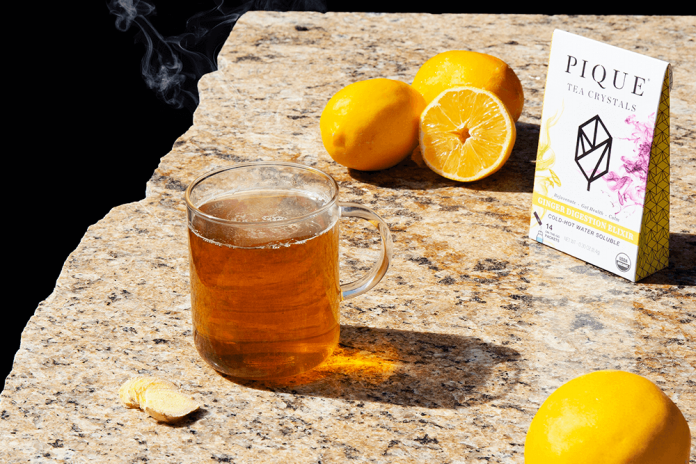In Traditional Chinese Medicine, Late Summer is recognized as the season that follows Summer and comes before Autumn – and it’s actually considered to be the 5th season! Late Summer is ruled by the Earth element and gives way to the Metal element of Autumn.
As we transition into Fall, TCM says we will start to feel the slowing pace and settling as we come off of a time of abundance, movement, and exuberant energy. Day by day, the sticky and hot summer days start to change into the crisp and cooler days of Fall.
As the leaves change colors and fall from the trees preparing for restful winter months, we too must look to our lifestyles and tune into the changes happening around us.
TCM views the body as a microcosm mirroring the larger macrocosm of the world around us. During the change of seasons, we can experience this relationship in a prominent way.
Because the energetic shifts that occur during the seasonal changes are reflected in our physical and emotional bodies, it is important to adjust our daily habits to support these transitions.
What to Expect During the Fall Transition
As we shift into Fall, there is less sunlight as the days slowly become shorter. In TCM, this is an example of the slow shift from a time of Yang to a time of Yin.
Yang refers to the vitality, heat, quick, bright, abundant nature of the height of Summer. This slowly shifts to the deep Yin – cool, dark, slow, reflective, nature of winter.
Fall captures the dynamic shift between these two poles.
In TCM theory, Fall relates to the Lung and Large Intestine organ and channel systems. It is also related to the emotion of Grief. The Lung in Chinese Medicine is also referred to as the “delicate organ” as it is the connection between the body and the outside world and can easily be attacked by pathogenic factors.
Supporting the energetics of the Fall season is important to bolster the health of the Lung organ system, as well as the body’s “Wei qi” or protective layer.

How to Support Your Body During the Fall Transition
Transitional phases bring many new changes in nature and in our own bodies that may be eased and supported through simple lifestyle adjustments.
Supporting the Lung and Large Intestine organ and channel systems through diet and lifestyle may help make for a smoother transition to the Fall season. Try incorporating the following tips!
Dietary Recommendations
Foods to Include are cooked vegetables and warm dishes. Incorporate foods that are in season such as butternut squash, acorn squash, parsnips and other earthy root vegetables.
These vegetables that are grown in the abundance of summer and harvested in the fall hold this essence to nourish us through the cooler and darker months.
The taste associated with Fall and the Metal element is pungent and spicy! Try adding warming spices such as cinnamon, nutmeg, curry, or peppermint for a cooling option.
Be careful not to over-consume pungent and spicy foods, which can stress other TCM organ and meridian systems such as the lung and liver energetics. Moderation is key!
Foods to Avoid
Limit the amount of cold and raw fruits and vegetables you may have been in the habit of eating throughout the summer. Cut back on the summer salads and smoothies for more stews and soups.
Also opt for room temperature water and warmer liquids such as teas.
Lifestyle Suggestions
Let go
Like the leaves on the trees, Autumn is a time to practice release and letting go. Think of ways that you can invite “letting go” more in your life, whether it’s emotional weight you are carrying or physical.
Grief is the emotion associated with the season of Fall and it can present as sorrow and loss of the past, or also as a sense of longing for the future. These are both a type of energetic holding.
In Chinese Medicine, Autumn is also related to the Large Intestine organ and channel systems which help the body to properly eliminate waste. Check in with your digestion and bowel movement regularity. In TCM, constipation may be understood as a difficulty “letting go” of waste. Is your body holding onto more than it needs to?
Slow down
As the days become shorter and darker, the abundance of Summer starts to slow and fade, preparing for the deep rest of winter.
Like this shift of energy in nature, look for ways to start slowing down. Explore ways to invite in more time for rest; perhaps adjusting your exercise routine, avoiding overscheduling, and making your way to bed earlier.
Here are some questions to consider from the Traditional Chinese World Foundation (2019). Take a moment to pause and reflect:
Are you able to breathe deeply, enjoying everything around you or are you continuing the fast, furious pace that you kept up in Summer? Where can you cut back so you can naturally slow down and embrace Nature’s changes in your own life? [1]
Breathwork and Qi Gong
Try including breathwork and movement practices that support the Lung Qi into your routine. The Lungs in Chinese Medicine are related to the Fall season as well as the strength of the Wei Qi and respiratory health. Check in with your body, how is the quality and ease of your breath?

Keep Warm and Protect your Defensive Qi
As the weather becomes cooler, dress in layers to make sure you are prepared for the changing temperatures. Protect yourself from wind and keep warm to maintain optimal health while adjusting to the new season by carrying a light scarf with you. In Chinese Medicine, the nape of the neck is particularly vulnerable to wind and drafts (it is actually referred to as the windgate!). Layer up and don’t forget your scarf!
In TCM, the Lung meridian and organ system are related to the Fall season and the strength of your Wei Qi or Protective Qi. For more tips on how to support your immune system check out this article.
Tea Recommendations
In the Fall, tuck away your cooling teas from summer and choose a warmer selection. They may include warming spices such as Cinnamon, Chai, and black tea.
Enjoy the slow and steady shift into fall and take good care!






